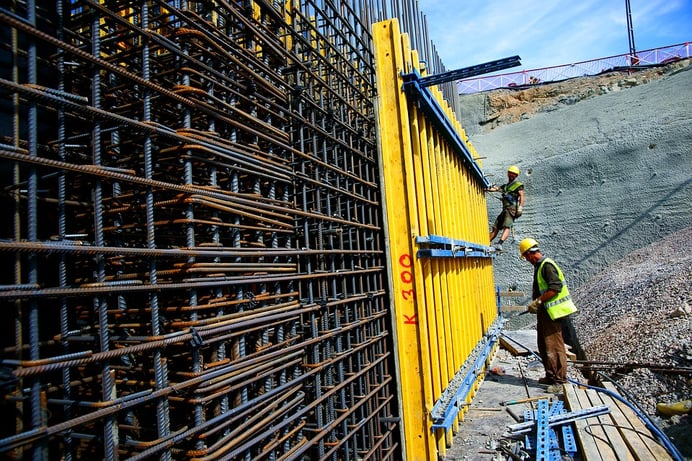What Is CIS? How Can Construction Companies Take Advantage Of It?

The Construction Industry Scheme (CIS) is a UK government-run scheme that's essential for contractors within the building sector for the payment of sub-contractors' wages and other construction industry costs.
Why Do I Need To Register For CIS?
You will need to formally register for CIS before taking on any sub-contractors, and your business can be a limited company, sole trader or partnership. One essential requirement to follow is that before taking on any sub-contractors you need to verify that these workers should not be employed directly as workers for your business.
Ideally, all sub-contractors you take on should be registered for CIS and you will need to verify this with HMRC when you initially appoint them. Any payments you make to sub-contractors should include deductions which will go towards the National Insurance and income tax they need to make at the year end. Where your sub-contractors are not registered for CIS you will need to make higher deductions from any income that's due. These deductions will need sending on to HMRC along with your regular monthly return. You will also be required to keep full records of the way in which you administer CIS. It's quick and easy to file monthly CIS returns via the government website.
What Are Contractors And Sub-Contractors?
Contractor businesses include any business that employs sub-contractors for building and construction work. You will also need to apply for CIS if your business does not carry out building works but spent more than £1m on construction costs over any three year period.
Sub-contractors should register for CIS if they carry out any building works for contractors.
What Types Of Construction Works Are Covered By This Legislation?
The definition of construction works includes any work carried out on:
- Any temporary or permanent buildings or structures
- Civil engineering jobs such as bridges or roads
When it comes to the types of work covered by CIS, you are classed as a contractor if you take on sub-contractors for:
- Preparing building sites by laying foundations or building access routes
- Any demolition or building dismantling works
- Building works of any kind
- Decorating, alterations or repairs to existing structures
- The installation of any systems, such as lighting, heating, ventilation, power or water
- Cleaning up building interiors following completion of building works
Some professions are exempt from any requirement to register for CIS and these include:
- Architects and planners
- Scaffold hire, where no labour is supplied
- Fabricators of materials used for construction, such as plant or machinery
- Carpet fitters
- Individuals that work at jobs clearly not associated with the construction trade, for example, anyone running a staff canteen on a construction site
- Overseas businesses are also required to register for CIS if they carry out constructions works in the UK.
Benefits Of CIS
Some other considerations for CIS contractors/subcontractors include:
- Claim various expenses which includes travel and subsistence costs which an employee would not be able to claim
- Gross payment status applications mean your contractor business can take advantage of gross payments from its clients without the need for 20% CIS deduction. This helps ensure your business turnover is always healthy
- You can opt to join the VAT Flat Rate Scheme to make more savings
We offer a wide range of smart accounting services to businesses and individuals, including CIS returns, tax returns, payroll, VAT returns, audits and tax planning. Get in touch if you would like more details.

Posts by Topic
- Accounting Services (58)
- Tax Services (57)
- Tax (50)
- Smart Accounting Services (34)
- Tax Return (29)
- Corporation Tax (26)
- COVID-19 (24)
- sme accounting (24)
- Clients (19)
- Switching Accountants (16)
- VAT (15)
- Making Tax Digital (13)
- News (13)
- Xero (13)
- Dividend Tax (12)
- bookkeeping (12)
- Payroll (10)
- Cloud Software (9)
- Capital Gains Tax (6)
- Inheritance Tax (3)
- Savings (3)
- Benefits In Kind (Employee Benefits) (2)
- Case Studies (2)
- Stamp Duty (2)
- Trust (2)
- Trust Account (2)
- GDPR (1)
- Insider (1)
- Lifetime ISA (1)
- Retirement Savings (1)
- Wear & Tear Allowance (1)